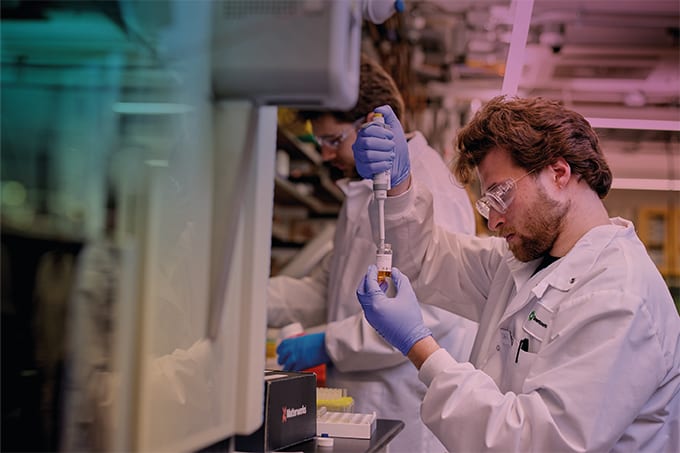“I always wanted to stay in academia, but when I came up with a solution for a problem I had, something else took over...” says Mark Hahnel, founder of figshare, an open data tool that allows researchers to publish all of their data in a citable, searchable and sharable manner. Mark is fresh out of academia having just completed a PhD in stem cell biology at Imperial College London. “I’m passionate about open science and the potential it has to revolutionize the research community.”

There are very few, if any, discoveries each year in academia that come about without building on concepts and ideas that have been previously published in academic journals. That’s how research progresses. Unfortunately, academics are rarely able to build upon actual research data, because it’s not readily available.
Perhaps the most depressing part is the waste of research outputs. Significant funding and researcher time goes into performing experiments that produce null results or negative data. This doesn’t need to be a bad thing. Researchers conduct experiments based on good prior knowledge of the field and a subsequent well-formulated hypothesis, but no single academic can be right all of the time. When we conduct experiments – often at great financial (and emotional!) cost – that do not confirm the hypothesis, what happens to the research data and results? In short, nothing.
Null results or negative data generally go unpublished. And while there have been some (largely unsuccessful) efforts to rectify this, a lack of true incentives appears to be holding things back. I’ll freely admit that I wouldn’t want to spend weeks of my own time writing up a paper based on negative data, only to see it rejected by most journals and have little to no impact – particularly with regards to my career. But I think this suggests the impact system and associated reward could be wrongly configured. What is the benefit of making negative data available? Consider a scenario: 20 research labs carry out the same experiment with the same hypothesis, which proves to be false. Statistically, 19 of the 20 research groups come to the correct conclusion, but a five percent statistical significance margin yields a single group that obtains a false positive. In the current academic publishing world, this one false positive could be the only result disseminated. Moreover, if researchers base their own hypotheses on the published literature, they’ll be wasting time and money building upon research tacitly proven to be false by the majority. Inevitably, this will produce further null results – or more false positives.
Great potential lies in the ability of subsequent researchers to make new analyses of the same data, including in combination with other data sets, or to use it in ways that had not been anticipated by the original author. Also of critical importance is the ability to reproduce published findings, which is difficult if not all information, such as raw or meta data, is available. For a long time, researchers have understood that the currency of academia is publication. And the system is very well played by most academics: publish often in high impact journals, and you are likely to continue down the tenure track to success and prestige. There’s nothing wrong with this to a certain extent. Peer review does act as a reasonable filter for important academic advances, but it does not solve the other problems above. Luckily the system is changing. There are new incentives for researchers to make all data available. Funders are beginning to demand that all research outputs are made available. And companies like figshare are working with publishers like PLOS (Public Library of Science) to offer solutions at the time of publication. The way in which academic content is distributed around the world is changing. By making all research outputs available through open access and creative commons licensing, we can, as academics, really start building on the work of those before us. In the meantime, feel free to challenge colleagues who aren’t pushing in the same direction!




